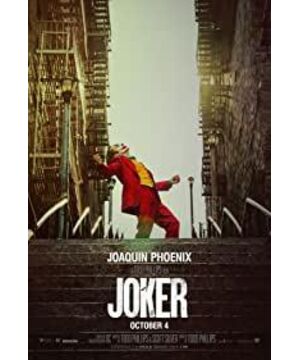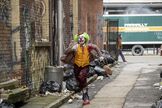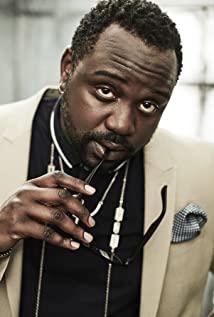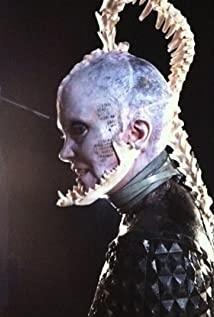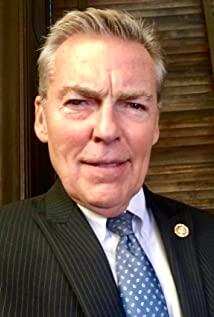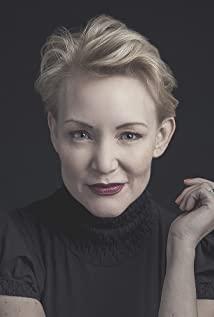Joker's most undisputed success lies in Joaquin Phoenix 's radiant excellence: he interprets the character's already stark tragedy with the maddening and advancing complexity with such precision that it reaches a disturbingly high level. Degree. Of course, this is also partly due to the script's achievement of the character: he is present in every scene, and almost every scene is full of emotion. In addition, a large number of techniques were used in the shooting to strengthen the emotions conveyed by the performance: the lighting with low illumination and large shadows, the slow motion of the solo dance, coupled with the distorted expression of Joaquin Phoenix , several moments on the screen were extremely extreme. Expressionist.
However, the choice of this one-man show has also led to two serious difficulties or contradictions in the play: the first is the character image, that is, due to the particularity of the image of the clown, his inability to empathize due to his psychotic characteristics The characteristics of the characters are in contradiction with the play's emphasis on the "normalization" of the environment and the people around them to oppress them; the second is on the grand theme, derived from the first contradiction, which in turn highlights the second. A contradiction—that is, the handling of social protests and street violent movements. Due to the perspective and space, the causes of social movements are shaped into a simple binary struggle of “the rich are not benevolent, and the poor are violent”, and there are empty scenes. , the inside is shallow. Since the clown is the totem of this violent struggle, and the struggle is mutually causal, the shallow treatment in turn damages the character of the clown.
In terms of expansion, the Joker is undoubtedly the most complex villain in DC comics (inseparable from the outstanding creations of Nolan and Heath Ledger), with sadness in the madness, and the cracked corners of his mouth are just the wonderful externalization of his heart. But if trying to sum it up in the simplest language, I think it's anti-social. His belief in and execution of the evil of human nature has reached the level of faith, so it should not be a simple and direct disappointment of human nature after being hurt by others - there should be doubts about human nature because of disappointment, and it should also be because of seeing good deeds. The latter believe in human nature, and the clown is obviously the opposite of human nature. In other words, such a special and "evil" image cannot be explained in a reasonable and simple way of "special encounters lead to a big change in personality". This is not credible, and on the other hand, it damages the uniqueness of the clown's image. charm. The treatment in the movie is too smooth and gradual. At the beginning, he will tease the children on the bus with goodwill. After being pitted by his colleagues, he is very angry but unable to fight back. Being bullied by Wall Street elites is the flash point in the middle, but after killing them, he will still panic. It wasn't until he found out that his mother deceived and (laissez-faire) abused him, and the only bright color in his life was just an illusion, he completely collapsed and turned into an evil clown. This kind of treatment seems logical, but it is difficult to convince the audience that it is difficult to convince the audience that his mental journey should not be as ordinary as an ordinary murderer.
Therefore, socialized attribution cannot explain the formation of antisocial personality. Arthur's humble kindness to the clown's evil domineering, if you have to explain it, it is better to blame it on the rustic dual personality, and finally Arthur is swallowed by the clown. But to rationalize this kind of change with steady and progressive personal encounters is obviously a straitjacket. The so-called times create heroes, and the birth or emergence of the clown personality should have an organic connection with the violent social movement that already exists in the script.
This leads to the second question. Since the perspective is limited to the clown, we only see a lot of public grievances - Arthur killing the clown becomes a totem - the struggle is getting more and more escalating - the birth of the clown leads the development process of the movement. Regarding the cause of the movement, the movie simply deals with the poor people's livelihood caused by the rich and unkind. How does the movement escalate? How did the clown play a role in fueling this, and how did it become the symbolic image of the movement? We have not seen all of this, and such a treatment is obviously superficial. Take Chaplin's laugh at the scene that the film emphasizes on protests outside and rich people watching Chaplin laughing in a luxury theater as an example, it can only leave the big bourgeoisie with a big brain full of fat about the labor in dire straits. The people only have the impression of exploitation and no sympathy. The clown was punched by old Wayne to wake up all illusions. The disillusionment between society and Arthur just overlapped. .
In fact, the way of improvement is already contained in the setting of the plot, such as the fuzzification of some key plot points. When it comes to the image of the clown, don't say that his girlfriend is a fantasy, and his life experience has nothing to do with Wayne. Use an unreliable narrative to make these two key points unanswered, and these two events will also be straightforward but unreliable. The explanation becomes inseparable from the evil of the clown, without clumsy attribution, the incomprehensibility of the clown will be more attractive. In social movements, the same method can be used: for example, a video shows a seemingly clown doing something to inspire the poor, such as rescuing an innocent protester from a police stick, and then the authorities come out and say that the video is a Fake, and we don't know the answer or if the person in the video is Arthur himself. Such unreliability gives the complexities of social movements and the complex interactions of clowns with them a small foothold. This kind of treatment cannot be said to solve two contradictions, but at least it is a direction for improvement.
But obviously, the movie doesn't try to work in this direction or the other, a lot of really good issues like "who decides what's funny", "is the media elitist or populist", the movie just throws it out, or is full of combat Unified solution. This has also caused some people to question its position, and then question whether it is worthy of the Golden Lion. Some people said that as a Hollywood commercial blockbuster, it should not have gone to grab art awards. To a certain extent, I agree with this point of view, because although the film is obviously different in temperament from ordinary blockbusters, using one-man show and expressionism to strengthen a character, the play does not show the Joker's transcendent anti-humanity, ordinary human nature, and social movements. The complexity of any of these three, the mediocre, logical but shallow script is the congenital flaw of the vulgar left-wing Hollywood.
Perhaps in the final analysis, my disappointment with the film is that I watched it at a special time in a special city, and many of the audience wore masks to express it. Similar social movements are taking place in several parts of the world at this moment. Some personal observations have made me realize that this is a retrogressive era. A vulgar trick. Strictly speaking, this is also the epochal disease that "Joker" shares, and some street movements, like the film, are becoming more and more like the expressionism of the Joker. This expressionism can create a seemingly profound temperament, but it lacks the ultimate understanding of complexity, creativity and aesthetics, and most importantly, the pursuit of beauty, which is hypocritical and vulgar after all.
View more about Joker reviews


